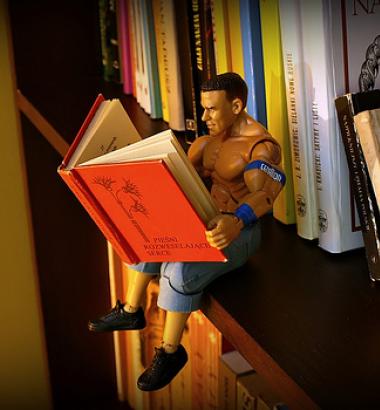
What We're Reading
WQ editors share their winter weather reads.
Steve Lagerfeld: A book bent on rescuing the reputation of bankers? The contrarian in me couldn’t resist Robert J. Shiller’s Finance and the Good Society (2012), a searching look at sleaze and the potential for good in the world of money. Shiller doesn’t stop at bankers; he sprinkles fairy dust over virtually every other group of players in the financial sector. But he also delivers some sharp jabs, arriving at the measured judgment that “we have to accept that some less-than-high-minded behavior may be the product of an economic system that is essentially good overall.”
Shiller is the Yale economist who famously predicted the stock market bust of 2000 in Irrational Exuberance and later the real estate collapse of 2007-08. He’s hardly a Wall Street shill—he favors progressive taxation, among other things, and is often mentioned as a Nobel Prize candidate. It’s unfortunately true that he writes in a style befitting such a prudent, even-handed sort, lumbering with that basket of fairy dust through the financial world, examining the vices and virtues of bankers, mortgage lenders, accountants, and many others. It’s odd and strangely touching, however, to read an Ivy League academic come to the moral defense of Wall Street types, and he’s persuasive.
Along the way, Shiller provides an enlightening ground level understanding of how the financial system works. He is passionate about the need to continue “democratizing” finance, which means giving relatively free reign to financial innovations such as mortgage securitization while spreading their benefits more widely. One of his many interesting ideas is to provide government subsidies to help individuals get legal and financial advice so they aren’t easy prey for snake-oil salesmen. This is a sober yet idealistic book, just the kind of antidote to hysterical demonizing that America needs.
Darcy Courteau: I do more rereading than reading, and I’m currently going through Family Ties (1960) by Clarice Lispector for perhaps the dozenth time. The best-known story in the Brazilian writer’s collection, “The Smallest Woman in the World,” tells of a French explorer who has just discovered the title character, an African pygmy whom he names Little Flower. In its Sunday edition, a newspaper prints a life-size photograph of her, disturbing some and delighting others. While following the reactions of readers in several households (one child imagines keeping the woman as a toy), Lispector’s story becomes a meditation on love, which is, in the author’s hands, dark and devouring:
In [one] apartment, a lady felt such perverse tenderness for the smallest of the African women that—an ounce of prevention being worth a pound of cure—Little Flower could never be left alone to the tenderness of that lady. Who knows to what murkiness of love tenderness can lead? The woman was upset all day, almost as if she were missing something. Besides, it was spring and there was a dangerous leniency in the air.
Back in the jungle, the tiny woman falls in love, too, with the explorer. She gazes upon him and his boots, her eyes telling him that “it is good to own, good to own, good to own.”
Here in DC, the weather has gone from freezing rain to nearly 70 degrees in the past couple of days. We’ve just received word that a line of storms is moving in. Spring, in other words. It’s a dangerous time.
Cullen Nutt: In the novel The Yellow Birds (2012)—which I recently finished—Iraq veteran Private John Bartle doesn’t realize why he joined the U.S. Army until near the end of the book, when his postwar mental disintegration is nearly complete. The author, Kevin Powers, has also published poetry, and he brings that form’s spare prose here. Bartle admits that all the gratitude shown him by friends and family for his military service is actually killing him—he has done terrible things, but
everyone wants to slap you on the back and you start to want to burn the whole goddamn country down, you want to burn every goddamn yellow ribbon in sight . . . but then you signed up to go so it’s all your fault . . . and, really, cowardice got you into this mess because you wanted to be a man and people made fun of you and pushed you around in the cafeteria and the hallways in high school because you liked to read books and poems sometimes and they’d call you fag and really deep down you know you went because you wanted to be a man and that’s never gonna happen now and you’re too much of a coward to be a man . . .
Powers is himself an Iraq War veteran. He joined up as a 17-year-old from Virginia and, in 2004 and 2005, served for a year as a machine gunner in Iraq. After the military, Powers went to college and then earned an M.F.A. in Poetry from the University of Texas at Austin. The Yellow Birds, his first novel, was a finalist for a National Book Award in fiction. Now Powers is at work on a book of poems, which is where he truly shines. In “Letter Composed During a Lull in the Fighting,” published in Poetry in 2009, Powers mentions a “Pvt. Bartle” in an arresting stanza:
Photo by eisenbahner via Flickr